By Eric Vandenbroeck and co-workers
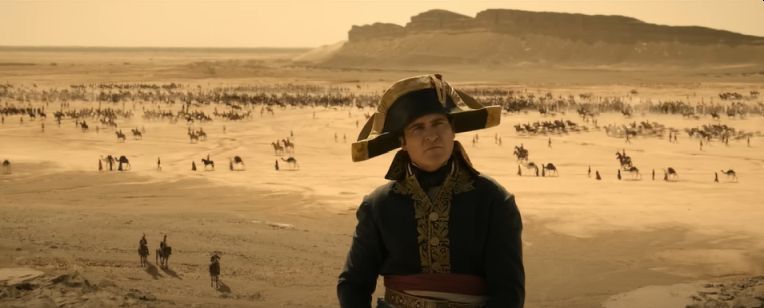
The film has grossed
$88.2 million worldwide.
Plot: In 1793, amid
the French Revolution, young army
officer Napoleon Bonaparte watched Marie Antoinette beheaded by the guillotine.
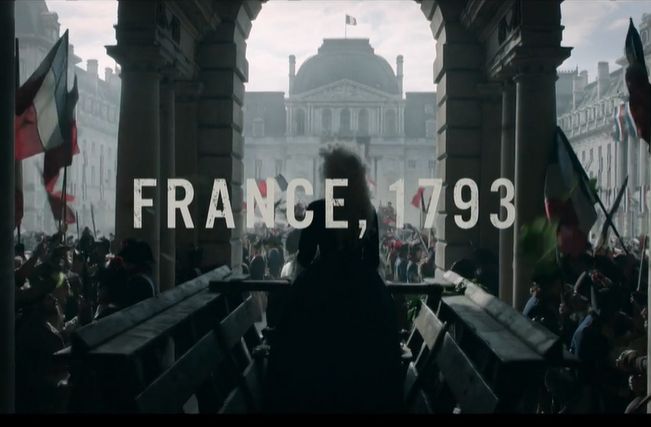
Later that year,
Revolutionary leader Paul
Barras had Napoleon
manage the Siege of Toulon; he successfully stormed the city and repelled the
British ships with artillery.
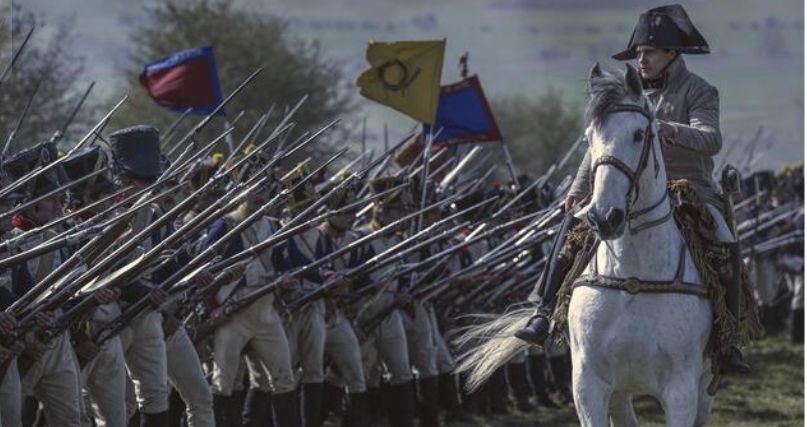
After Maximilien
Robespierre was deposed and executed at the end of the Reign
of Terror, French leaders,
including Napoleon, attempted to restore stability. Again employing artillery,
Napoleon suppressed the royalist insurrection on 13 Vendémiaire in 1795.
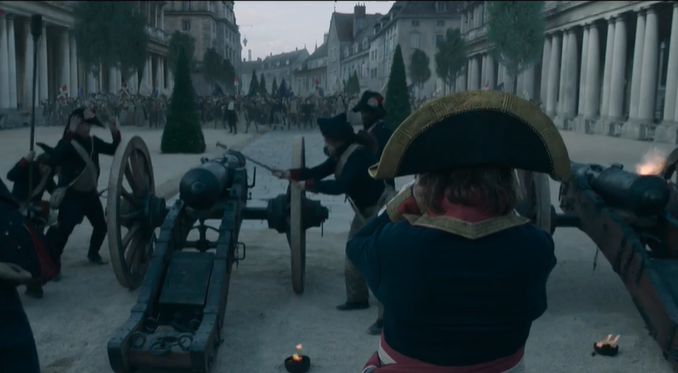
Napoleon woos
aristocratic widow Joséphine de Beauharnais and the two eventually marry. Despite their
vigorous sex life, they bear no children. In Egypt, he prevails again at
the Battle of the Pyramids in 1798 but rushes home when he hears Joséphine
has an almost 10-year younger lover, Hippolyte
Charles. The Directory criticizes him for abandoning his troops, but he
condemns them for their poor leadership of France and, alongside several
collaborators such as Talleyrand, Fouché, Sieyès, and Ducos, overthrows them in a
coup and
becomes First Consul.
Napoleon was crowned Emperor
of the French by
the pope in
1804, during which he audaciously put the crown on his head.
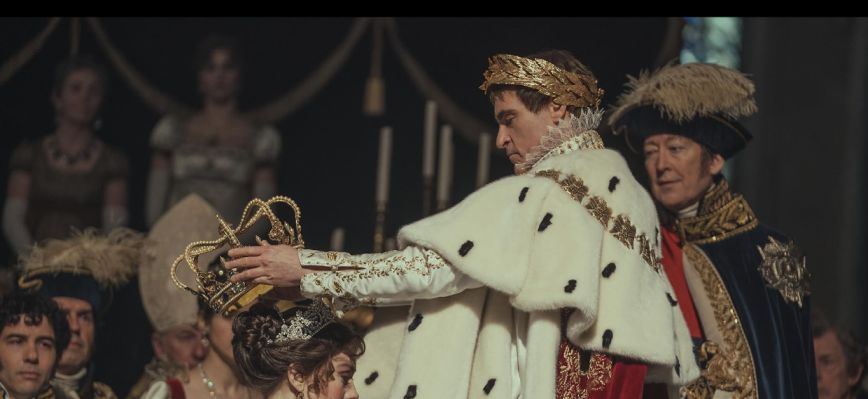
Foreign Minister Talleyrand suggests to Austria an alliance, though the Austrians dismiss the
idea. A year later, Napoleon outmaneuvered and defeated the Austrians and
Russians at the Battle of Austerlitz, forcing
them to retreat over frozen lakes before bombarding the ice and drowning them.
Afterward, he invites Austrian Emperor Francis II for wine—which Russian Tsar Alexander
I declines to attend—and tells
Francis that since he did not destroy their armies, he expects the latter to be
grateful.
Napoleon's mother has him impregnate a mistress,
proving that Joséphine is infertile. He divorces her in 1810, publicly slapping
her in the face when she initially refuses to read her portion of the decree,
but the two remain on good terms and continue exchanging friendly letters.
Napoleon marries Marie Louise of Austria, who bears a son one year later.
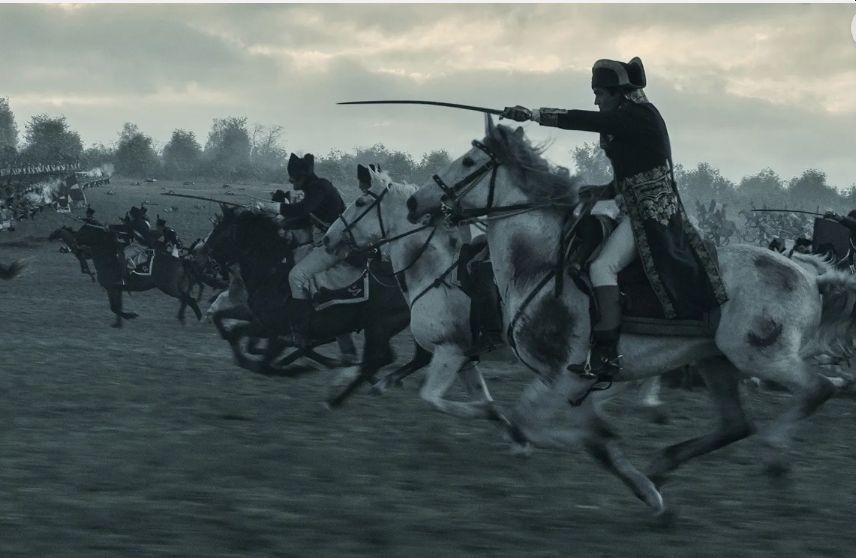
In 1812, Napoleon invades Russia after
Alexander reneges on a
peace treaty with France.
He prevails, despite bloody guerrilla resistance by Don
Cossack forces, at
the Battle of Borodino,
but finds Moscow empty and later set
aflame. Napoleon retreats
during the winter to France, having lost about half a million men. In 1814,
the Coalition force
Napoleon's abdication and exile him to Elba.
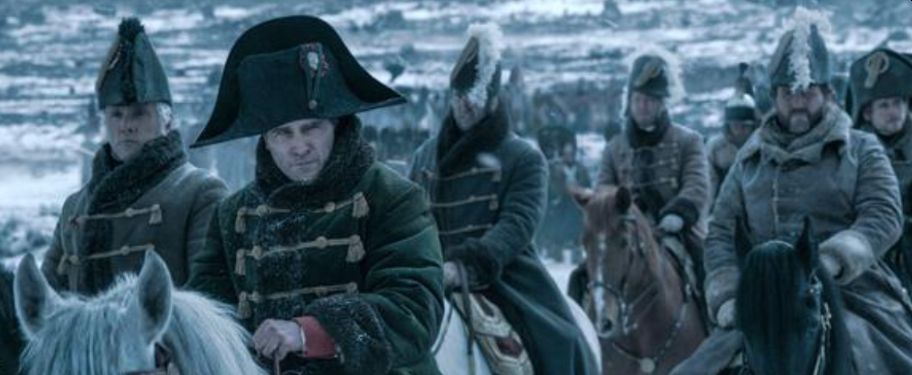
In 1815, upon hearing
that Joséphine is unwell, Napoleon escapes the island and returns
to power in France. She,
having been forced into reclusion at the Château
de Malmaison, dies
before he arrives. King Louis
XVIII sends the Fifth
Regiment to stop Napoleon, but he charms them into joining him.
At the Battle
of Waterloo in
June, Napoleon, having amassed more troops, confronts the British army under
the Duke of Wellington. French cavalry charges are repulsed by British infantry
squares, and a desperate
Napoleon urges his remaining soldiers forward, but this advance is decimated by
re-formed lines of enemy infantry. The forces of Prussian Marshal Blücher arrive to reinforce Wellington, and the French are
broken. As Napoleon retreats, he salutes Wellington.
Napoleon is exiled,
this time to the island of Saint
Helena in the middle
of the Atlantic Ocean, and is seen bantering with children, writing his memoirs that would become a worldwide best-seller, and
presenting to his listeners a version of history where he is always right.
Napoleon died in 1821, hearing Joséphine beckon him to
meet her again. An epilogue notes that roughly 3 million people died in his
wars.
For updates click hompage here